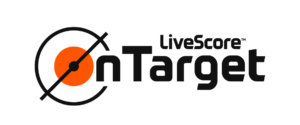By Andreas Hartmann, CEO & Co-Founder of Vaix – a Sportradar company
In recent years, there has been a marked instability in customer acquisition and retention, with the lifetime value of newly acquired customers declining. This has been a considerable source of concern for sportsbook operators, as much as it has been for business elsewhere.
This raises the questions, why are we struggling to retain these customers long-term and how can we effectively mitigate this trend?
The first comes down to customer choice. Since punters have a range of bookmakers to choose from, and many are casual bettors, long-term retention is considerably more difficult to secure.
AI driven personalisation has been shown time and again to mitigate this challenge. It’s not a new trend – in fact the concept itself has been around since the 90s. But its implementation has never been straightforward, it has only properly entered the mainstream within the last decade.
Keeping customer loyalty in a customer-centric market
Operators have historically had challenges retaining customers in the long-term. Bettors can choose to place their bets with several bookmakers, each one offering lucrative sign-up bonuses in a bid to acquire customers. Even with the most compelling sign-up offer, it’s very easy, not to mention likely, for bettors to ‘site hop’ to a competitor.
Site hopping, or straightforward customer churn, tends to increase after big sporting events like the recent FIFA World Cup. Having spent heavily to acquire customers in the build-up to a show piece event, operators struggle to keep bettors engaged and retained. Lack of content and a drop off of super casual bettors are often to blame.
The traditional approach in the iGaming and sports betting world has been reactive; whereby operators wait till the customer has left before offering them a bonus to come back and play. This approach not only drives up operators’ bonus costs and eats into those low margins, but the likelihood of a customer returning is relatively low, only somewhere between 5% and 10%**.
The solution is to focus on true retention, and strategies that are designed to maximise customer loyalty. For instance, reaching out to a customer when they are thinking of leaving, considerably increases the chances that they stay, to 15%-20%**.
This is where personalisation comes in. Creating an offering tailored to the interests of individual customers, operators can use the technology to reduce the number of customers at risk of churn.
In fact, retention case studies have shown us that personalising the user experience increases dwelling time and the likelihood of a customer returning. This is reinforced by consumer psychology, which argues that customers are creatures of habit – if they are happy and getting what they want from the sportsbook, they have less reason to look elsewhere.
By providing the benefits that personalisation offers, both the likelihood of satisfaction and the rate of retention are likely to rise. This allows for more sustainable business growth, and fewer costs associated with trying to win them back, such as through the previously mentioned return bonuses.
Taking a page from entertainment personalisation
Bridging the gap between what a business offers and what its customers want has always been central to customer retention.
Consider Netflix and Spotify, both of which have managed to lean into new technologies that truly deliver on their personalisation promises, going beyond website banner targeting with algorithms that create highly personal experiences for their customers. They have pioneered a new level of user personalisation.
This is the level of personalisation that sportsbook operators are now aiming for.
What underpins the success of these entertainment providers is their use of Deep Learning (DL) technology. This machine learning technique allows for more sophisticated personalisation. At Vaix, a Sportradar company, we have applied DL to our work in gaming for many years now, and it has materially outperformed other AI solutions of its kind.
For instance, sportsbook operators can use DL to identify a user’s next best bet, make market recommendations, and highlight similar events to those that the user has recently bet on. This is a level of personalisation that rivals that of our entertainment counterparts.
We believe this is why AI-driven personalisation is a top priority for sportsbook operators seeking to improve their customer retention rates.
Third-party solutions
Nevertheless, developing AI-driven personalisation capabilities in-house is a complex undertaking, which could be costly and time consuming. Rather than invest in building out teams to develop proprietary algorithms, third-party technology, like the services provided by Sportradar, offer sportsbook operators a more accessible and sustainable option.
Engaging with a third-party specialist allows operators to select the services that best meet the needs of their business and ensure that developments such as changes in regulatory conditions are addressed. Furthermore, operators have the option to manage the services themselves, in-house, or lean on the experts to manage the solution on their behalf. Either way the operator is in charge.
AI-driven personalisation is set to be a key pillar in customer retention moving forward. The traditional methods of acquiring and retaining users are not enough as customers demand a sports betting experience tailored to their individual interests and preferences. Sportsbooks should be looking for something that differentiates their business from their competitors. And a leading differentiation has and will continue to be, the business’s ability to understand and address customer wants and needs. This is what keeps customers coming back for more.
There’s so much potential for operators bold enough to embrace this technology. AI-driven personalisation is a game changer that will enable operators to better understand their customers and transform the sports betting experience.
**Source: Vaix customer insights 2020.









